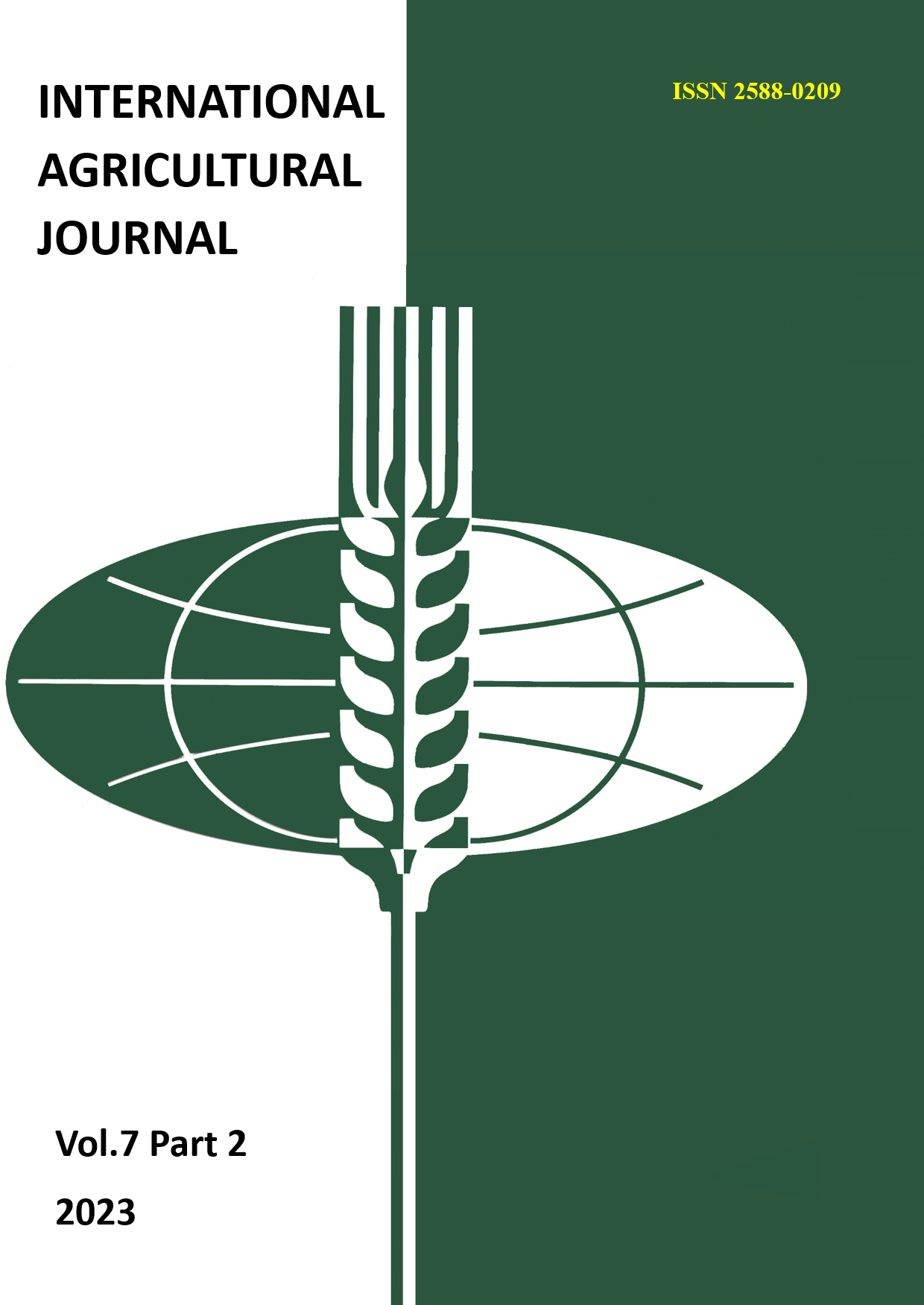FOOD BANKING AS A RESPONSIBLE CONSUMPTION MECHANISM IN THE SHARING ECONOMY
Main Article Content
Abstract
The article is devoted to the study of various aspects of food banking: socio-economic, legal, ecological. The definition and classification of food banking are given. The problem of food banking development is considered in the context of combating food losses and spoilage. Along the entire path of movement of products from production to the final consumer, this struggle is one of the global economic challenges of our time developing sustainable development. The environmental damage caused by waste and its disposal is manifested as a negative economic effect. This problem requires an immediate solution. Based on the principles of rational, responsible consumption, the sharing economy is one of the mechanisms for solving food waste and wastage, contributes to reducing environmental risks, the level of poverty, and the elimination of hunger. In the article, food banking is considered a system for redistributing food surpluses to reduce food losses and spoilage and provide food to socially unprotected segments of the population in a shared economy. The experience of food sharing practice in foreign countries has shown its effectiveness in solving the problems of providing affordable food to socially unprotected segments of the population and combating food losses and spoilage. In Russia, food banking is gaining popularity, but the lack of the necessary infrastructure and regulatory barriers hinder its development. The priority of legal regulation of food banking should be the quality and safety of the distributed food. Simultaneously, the study showed that the restrictions imposed by the state to products with an expiring but not expired shelf life and sanctioned goods are excessive in conditions of lack of food supply for certain socially unprotected segments of the population.
Article Details
References
2. Golovetskiy N. Ya., Grebenik V.V. (2017). Fundamental foundations of the sharing economy. Bulletin of S.Yu. Witte. Series 1: Economics and Management, 4 (23), 21-26.
3. Miller L, Rozin P., Page Fiske A. (1998). Food sharing and feeding another person suggest intimacy; two studies of American college students. European Journal of Social Psychology Eur. J. Soc. Psychol, 28, 423-436.
4. FAO (2019) The State of Food and Agriculture Report of the Food and Agriculture Organization of the United Nations. Retrieved from URL: http://www.fao.org/state-of-food-agriculture/2019/ru/
5. UN (2020). UN sustainable development goals. Retrieved from URL: https://www.un.org/sustainabledevelopment/ru/hunger/
6. St. Mary's Food Bank. (n.d.). Retrieved from URL: https://www.firstfoodbank.org/about/ (accessed 10.12.2020)
7. Tarasuk, V. and Eakin, J. (2005). Food Assistance Through ‘Surplus’ Food: Insights from an Ethnographic Study of Food Bank Work. Agriculture and Human Values, 22, 177-178.
8. Kim V.V., Galaktionova E.A., Antonevich K.V. (2020). Food losses and food waste in the consumer market of the Russian Federation. International Agricultural Journal, 4, 1-20.
9. Bachnik, Katarzyna & Szumniak-Samolej, Justyna. (2018). Social Initiatives in Food Consumption and Distribution as Part of Sustainable Consumption and Sharing Economy. Journal of Entrepreneurship, Management and Innovation, 14, 101-122. DOI: 10.7341/20181425.
10. Berketova L.V., Volodina S.S. (2020) Food sharing as an environmentally friendly way of using food products. Bulletin of Science and Practice. 6 (1), 253-259.
11. Dees, Gregory J. (2001). The Meaning of «Social Entrepreneurship». Retrieved from URL: https://web.mit.edu/sloan2/dese/readings/week01/Dees_TheMeaningofSocialEntrepreneurship.pdf
12. Civil Code of the Russian Federation. Moscow, Russia.
13. Feeding America. (n.d.). Retrieved from URL: https://www.feedingamerica.org/about-us/our-history
14. The Global Food Banking Network. (n.d.). Retrieved from URL: https://www.foodbanking.org
15. Guardian (2016) French law forbids food waste by supermarkets. Retrieved from URL: https://www.theguardian.com/world/2016/feb/04/french-law-forbids-food-waste-by-supermarkets
16. Deutsche Welle (2019) Официальный сайт Deutsche Welle. Retrieved from URL: https://www.dw.com/ru/супермаркеты-чехии-будут-отдавать-еду-нуждающимся/a-46959179
17. Banco Alimentare, Italian Food Bank Network. (2014). Retrieved from URL: https://www.bancoalimentare.it/en/italian-food-bank-banco-alimentare-about-us
18. Food Fund “Rus". (n.d.). Retrieved from URL: https://www.foodbankrus.ru
19. Federal Law. (1995). On charity and volunteering (volunteering). (August 11, 1995 No 135-FZ). Moscow, Russia.
20. Federal Law (2000). On the quality and safety of food products. (January 02, 2000 N 29-FZ). Moscow, Russia.
21. Ministry of Finance of the Russian Federation. (2019). Letter (March 20, 2019 No 03-03-06 / 3/18418)
22. Decree of the President of the Russian Federation. (2015). On certain special economic measures used to ensure the security of the Russian Federation. (July 29, 2015, No 391) Moscow, Russia.
23. Draft federal law N 1151505-6. On the implementation of certain special economic measures used to ensure the security of the Russian Federation. Moscow, Russia.
24. Federal Law. (2019). On Amendments to the Federal Law. (July 26, 2019 No 245-FZ).
25. Shapsugova M.D. (2019). Forgotten nonprofits? Commentary on the law on social entrepreneurship. Social and Pension Law, 4, 53-56.
26. Decree of the President of the Russian Federation. (2020). On the approval of the Doctrine of food security of the Russian Federation. (January 21, 2020, No 20). Moscow, Russia.
27. Federal Law (1998). On Production and Consumption Wastes. (June 24, 1998 No. 89-FZ). Moscow, Russia.

